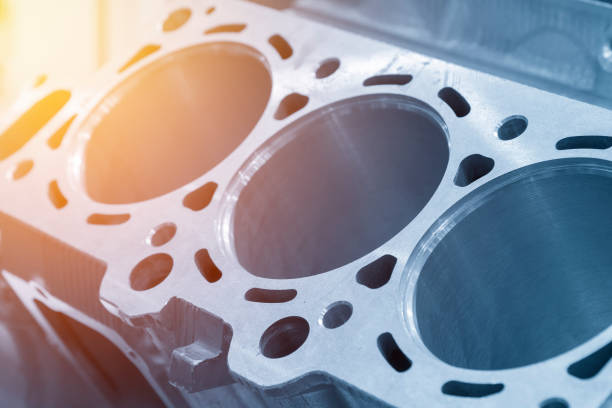Choosing the right material for an engine’s cylinder casing is crucial for performance and durability. But how do you determine which material suits your engine best? Understanding the characteristics of different materials can help you make an informed decision. This article delves into various engine block materials, comparing their benefits and drawbacks to guide your choice.
Cast Iron: A Traditional Choice
Advantages of Cast Iron
Cast iron has been a popular material for cylinder block for decades. Known for its durability, cast iron is highly resistant to wear and tear, making it a reliable choice for heavy-duty engines. It also has excellent thermal conductivity, which helps manage engine heat. Moreover, cast iron’s ability to dampen vibrations contributes to quieter engine operation.
Disadvantages of Cast Iron
However, cast iron has its downsides. It is relatively heavy, which can negatively affect fuel efficiency. Additionally, the material is prone to rusting and requires regular maintenance to prevent corrosion. Cast iron also has lower tensile strength than some modern materials, which may limit its suitability for high-performance engines.
Aluminium: The Lightweight Contender
Advantages of Aluminum
Aluminium is increasingly being used for engine blocks, especially in modern vehicles. One of the most significant advantages of aluminium is its lightweight nature, which contributes to improved fuel efficiency. Aluminum also offers excellent heat dissipation, reducing the risk of overheating. This material is corrosion-resistant, which lowers maintenance requirements.
Disadvantages of Aluminum
Conversely, aluminium has a lower wear resistance than cast iron, which may lead to quicker degradation under high-stress conditions. Aluminium casings may require additional reinforcement or coatings to enhance durability. Furthermore, aluminium is generally more expensive, which could increase the engine’s overall cost.
Compacted Graphite Iron: The Middle Ground
Advantages of Compacted Graphite Iron
Compacted graphite iron (CGI) is a relatively new material gaining popularity in the automotive industry. It offers a balance between the strength of cast iron and the lightweight properties of aluminium. CGI is stronger and more wear-resistant than aluminium, making it suitable for high-performance applications. Additionally, CGI provides excellent thermal conductivity and damping characteristics, similar to cast iron.
Disadvantages of Compacted Graphite Iron
CGI is more challenging for machines despite its advantages, which can lead to higher manufacturing costs. The material also requires specialised production techniques, which may limit its availability. Moreover, while it is lighter than cast iron, CGI is still heavier than aluminium, which might be a drawback for those prioritising fuel efficiency.
Magnesium: The Lightweight Future?
Advantages of Magnesium
Magnesium is the lightest and most commonly used cylinder block material. Its ultra-lightweight nature can significantly boost fuel efficiency and vehicle performance. Magnesium also offers good thermal conductivity and corrosion resistance, making it a strong candidate for modern engines focused on efficiency.
Disadvantages of Magnesium
However, magnesium has several challenges. Its lower melting point than other materials can limit its use in high-temperature environments. Magnesium is also more prone to deformation under stress, which could impact engine durability. Additionally, the cost of magnesium is generally higher, making it less accessible for widespread use.
Which Material is Best for Your Engine?
Deciding on the best material for your engine’s casing depends on various factors, including the type of vehicle, the desired performance, and budget constraints. Aluminium might be the ideal choice for everyday vehicles where fuel efficiency and cost are significant considerations. However, materials like compacted graphite, iron or steel may offer the durability and strength required for high-performance or heavy-duty applications.
Selecting the right material for a cylinder block is a crucial decision impacting an engine’s performance, efficiency, and longevity. Whether it’s the traditional reliability of cast iron, the lightweight efficiency of aluminium, or the emerging benefits of compacted graphite iron, each material offers distinct advantages. By carefully considering the engine’s specific needs, you can choose the most suitable material that aligns with your performance goals and budget.




